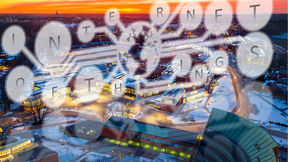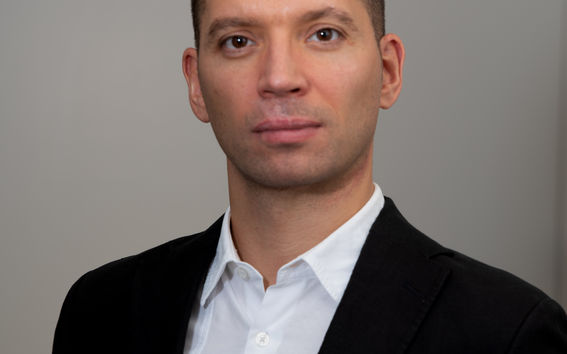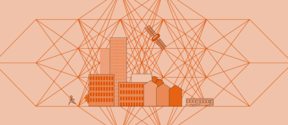What prevents us from making the most of the IoT? Aalto researchers developed ways to make IoT truly ubiquitous

In recent years, the Internet of Things (IoT) has become a reality in our society. It has helped automatize our homes, healthcare, and industrial manufacturing, to mention just a few application areas. In the home environment, this can mean that your energy supplier reads your energy meter automatically, or that you have a security system in your home, which allows you to monitor and manage your property, simply by using a mobile app.
Óscar Novo Díaz, Doctor of Science (in Technology) who recently graduated from Aalto University, says that IoT can be seen as an extension of the Internet, and one of its most essential aspects resides in its ubiquitous nature. IoT devices are broadly available and fully connected to each other and the Internet.
However, one of IoT’s main challenges, too, lies in its ubiquitous nature; currently some technical challenges prevent us from making the most of IoT’s potential. Óscar Novo recently defended his doctoral dissertation on this topic, and he focused on four specific categories; ubiquitous communication, access control, concurrency control, and ubiquitous semantics.
‘Right now, we have protocols for the Internet of Things, but we have to ensure that all those protocols – in terms of security, accessibility, and so on – are totally invisible and work very smoothly, without spending too many resources of the constrained IoT devices,’ he explains. By the term constrained, he means that inexpensive devices, such as small sensors, run on batteries and have a relatively low computation power.
The decentralization of IoT, its heterogeneity in terms of protocols, technologies and standards, has created several interoperability questions from the perspective of connectivity, management, and data processing. Many of those challenges are scattered across the various layers of the Internet protocol stack, making it difficult to identify the crucial mechanisms contributing to the cause.
As an important part of his doctoral research work, Óscar Novo and his colleagues developed several solutions that address these problems. Particularly, the researchers implemented an IP-agnostic mechanism that enables the connectivity and communication of IoT devices behind Network Address Translations. Moreover, they designed and implemented a resource concurrency framework to manage the concurrent access of shared resources in IoT environments.

Óscar Novo DíazWe have to ensure that all protocols – in terms of security, accessibility, and so on – are totally invisible and work very smoothly.
To improve the current access control situation, they also designed a decentralized access control management system that relies on blockchain technology to control the authorization policy of the IoT devices. Finally, they addressed the problem of semantic interoperability, proposing and implementing a system designed to enable interoperability across heterogeneous semantic IoT domains.
Due to the COVID-19 pandemic, Óscar Novo’s public defence took place online. He was physically together in the same lecture hall with the kustos, Professor Antti Ylä-Jääski, and the opponent, Professor Sasu Tarkoma, but everyone else followed the conference over Zoom. Novo thinks that everything went well and having the conference online had its benefits. ‘Normally, public defences are quite heavy and some people may be more interested in the presentation, while others want to hear the discussion with the opponent. Now, people could just join and leave the conference whenever they wanted.’
Professor Ylä-Jääski kept track of the number of participants during the event and he told Novo that, at some point, around 20–30 people were following it online. ‘That felt really nice.’
Óscar Novo has been working on the IoT field for years, for which reason it felt natural to select it as his dissertation topic, too. Currently, he is working as a researcher at a private company. ‘I would like to move towards another research topic but still stay connected to IoT and use my IoT knowledge. For example, artificial intelligence is a very promising and interesting area of research.’
Óscar Novo Díaz defended his dissertation on 24 April 2020. The title of his dissertation is ‘Improving the Ubiquitous Capabilities of the Internet of Things’. Link to the doctoral thesis: https://aaltodoc.aalto.fi/handle/123456789/43772
Read more news

DeployAI Partners Gather for Heart Beat Meeting in Helsinki
The European DeployAI project's partners gathered for the Heart Beat meeting hosted by Aalto University Executive Education in Helsinki.
Get to know us: Associate Professor Maria Sammalkorpi
Sammalkorpi received her doctorate from Helsinki University of Technology 2004. After her defence, she has worked as a researcher at the Universities of Princeton, Yale and Aalto.
Aalto computer scientists in ICML 2024
Computer scientists in ICML 2024